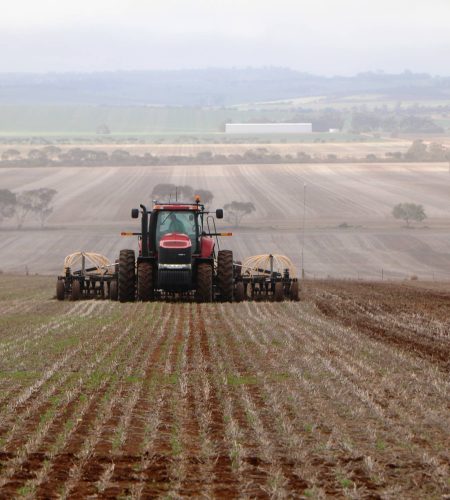Dr Richard Bell
Project Leader
Murdoch University
This project is investigating innovative cropping and mixed farming practices through the lens of drought resilience and risk management, to help Australian farmers better prepare for future drought.
While insufficient rainfall is the main limitation to production in Australian farming, most crops yield less than their water-limited potential because of poor use of rainfall and stored soil water. Modest improvements in the extraction of soil water by overcoming subsoil constraints can result in significant yield improvements.
The project team is evaluating drought resilience in different farming systems and soils through the Soil CRC’s established network of long-term trials. Seven of our existing trials across four cropping regions are being extended, enabling data collection for up to eight years on a range of soil types and constraints with varying risk of drought.
Field trial longevity is crucial for understanding drought resilience using amelioration techniques, because soil amendments need time to change soil properties (such as soil organic matter, infiltration rates and water holding capacity), and responses may differ yearly due to seasonal variability.
This project is investigating novel products and approaches to alleviate subsoil constraints and increase water use efficiency, soil health and soil carbon. Existing soil amelioration experiments will continue at field sites in Kweda, Bullaring and Wathingarra in Western Australia and Lockhart in New South Wales, while cropping experiments will continue in Burramine and Birchip in Victoria and Gunning Gap in New South Wales.
Amelioration strategies are being assessed using advanced soil chemistry and plant physiology techniques. Soil water content will be determined using novel soil water-sensing equipment developed by the Soil CRC.
The long-term field data is being used to extend our knowledge of resilience of crop yield by APSIM modelling, and of financial risk using economic analysis.
This long-term, multi-state research will improve our understanding of the role of these approaches and products on drought resilience, which will better equip farmers with the knowledge they need to prepare for future drought.


